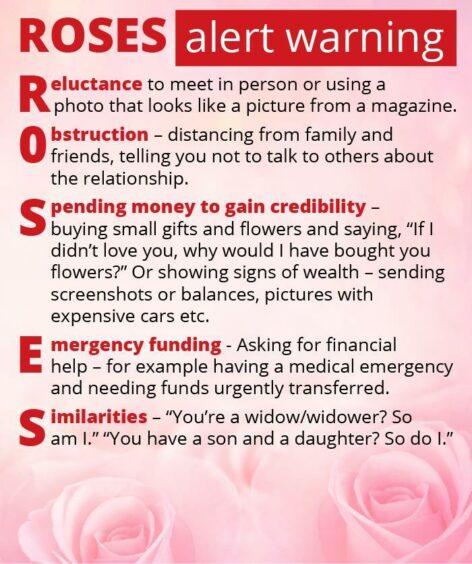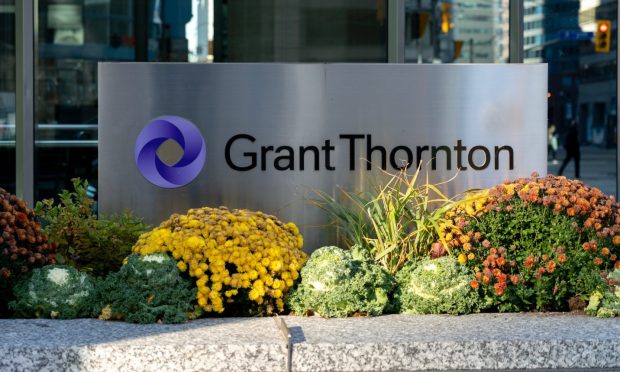People looking for love this Valentine’s Day are being warned to be alert to scammers as “romance fraud” crime rises in Scotland.
The risk has prompted the Royal Bank of Scotland to issue a five-point alert highlighting red flags that daters should look for to avoid being scammed – particularly those looking for love online via dating apps or sites.
All scams now online
All romance-related scams reported from October to December 2021 originated online, the bank said.
Meanwhile, the bank said it has seen more romance scam victims on Tinder than any other dating app.
Tinder was recently highlighted as a fraud hotspot in the Netflix documentary The Tinder Swindler which is currently the number one show on Netflix UK.
Romance fraud crime cost victims in Scotland over £990,000 in the year to October 2021 — while across the UK victims lost some £91.9 million.
Dr Hannah Shimko, from the Online Dating Association, said: “Online daters should be aware of the actions fraudsters will use to manipulate them into parting with their money.
“This Valentine’s Day, take the time to think about the person behind the profile, get to know your date, and don’t send money to someone you’ve only met online.”
Remember R-O-S-E-S
The Royal Bank of Scotland five-point red alert aims to help people avoid becoming a romance scam victim, with hints and tips on what to look out for.
R – Reluctance to meet in person or using a photo that looks like a picture from a magazine.
O – Obstruction – distancing from family and friends, telling you not to talk to others about the relationship.
S – Spending money to gain credibility – buying small gifts and flowers and saying, “If I didn’t love you, why would I have bought you flowers?” Or showing signs of wealth – sending screenshots or balances, pictures with expensive cars etc
E – Emergency funding – Asking for financial help – for example having a medical emergency and needing funds urgently transferred.
S – Similarities – “You’re a widow/widower? So am I.” “You have a son and a daughter? So do I.”
Social media firms must act
It’s not just Tinder that is hosting scammers either.
Jason Costain, the bank’s head of fraud prevention, said fake profiles are a wider problem across social media.
Over half of romance scam cases reported to Royal Bank originated on platforms such as Scrabble Go, Facebook and Instagram.
He said the companies needed to act to prevent fraud.
He said: “Innocent people who are looking for friendship or love are being preyed upon by criminals using fake profiles.
“It’s far too easy to set up a fake profile on an online dating site or social media platform.
“These companies need to do more to prevent fake profiles from being created.
“We hope our five-point red ROSES warning will help raise awareness of some of the techniques criminals use and help customers avoid falling victim to these types of scams.”
The trade association for the financial services industry UK Finance recently announced that total UK losses due to authorised push payment scams increased to £355.3 million in the first half of 2021, up 71% compared to the same period in 2020.
Of these, there were 1,624 romance scam cases with victims sending a total of £15.1m to scammers.











